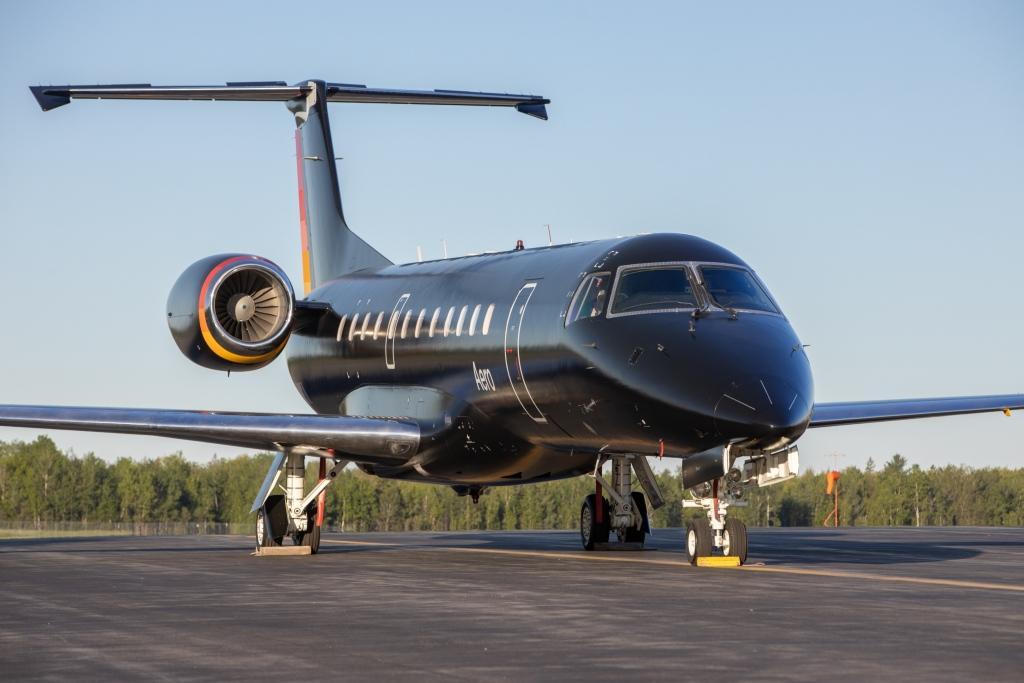In the era of sophisticated cyberattacks, cybersecurity has become a critical concern for businesses, governments, and individuals alike. For high-net-worth individuals and corporate executives traveling aboard private jets, the stakes are particularly high. With sensitive communications, financial transactions, and strategic discussions often conducted mid-flight, private jet operators have turned to advanced technologies to combat cybersecurity threats.
This article explores how private jet technology is evolving to protect passengers from digital vulnerabilities, the challenges faced, and the proactive measures taken to ensure secure and seamless air travel.
Why Cybersecurity Matters in Private Aviation
Private jets are more than luxurious modes of transportation; they are flying offices for business leaders, politicians, and celebrities. These passengers rely on inflight connectivity to access corporate networks, communicate with stakeholders, and manage high-stakes operations. Such reliance on technology makes private jets attractive targets for cybercriminals.
Common Cybersecurity Threats
- Data Interception: Hackers can exploit inflight Wi-Fi to intercept sensitive information such as emails, passwords, and financial transactions.
- Unauthorized Network Access: Poorly secured onboard systems may allow hackers to infiltrate the aircraft’s network, compromising passenger data or even flight systems.
- Device Hacking: Passengers’ personal devices connected to the aircraft’s network can become entry points for cyberattacks.
- Social Engineering: Attackers may target crew members or passengers through phishing scams or impersonation to gain access to secure systems.
Technologies Designed to Prevent Cybersecurity Threats
1. Secure Inflight Wi-Fi Networks
Inflight connectivity has revolutionized private aviation, enabling seamless communication at 40,000 feet. However, secure inflight Wi-Fi networks are essential to prevent unauthorized access.
- End-to-End Encryption: Leading providers ensure that all data transmitted over Wi-Fi is encrypted, making it unreadable to potential attackers.
- Private Virtual Networks (VPNs): Passengers are encouraged to use VPNs to add an extra layer of security.
- Firewall Protection: Onboard networks are equipped with advanced firewalls to block unauthorized connections.
2. Advanced Authentication Protocols
To prevent unauthorized access, private jet systems now utilize multi-factor authentication (MFA) for all digital platforms. This includes:
- Biometric Scanning: Fingerprint or facial recognition ensures that only authorized users can access onboard systems.
- One-Time Passwords (OTPs): Temporary passcodes add another layer of security for accessing sensitive applications.
3. Cyber-Resilient Avionics Systems
Modern private jets are equipped with avionics systems designed to withstand cyberattacks. These systems include:
- Isolated Networks: Critical flight systems operate on separate, closed networks that are inaccessible from the passenger Wi-Fi.
- Intrusion Detection Systems (IDS): These systems monitor network traffic for unusual activity, alerting operators to potential breaches.
- Redundancy Protocols: Backup systems ensure that essential functions remain operational even during an attempted attack.
4. Artificial Intelligence and Machine Learning
AI-powered systems are transforming cybersecurity by identifying and neutralizing threats in real-time.
- Behavioral Analytics: AI monitors user behavior to detect anomalies, such as unauthorized logins or unusual data requests.
- Threat Prediction: Machine learning algorithms analyze historical data to predict and prevent potential attacks.
- Automated Responses: AI systems can isolate compromised networks or devices automatically, mitigating damage.
5. Secure Satellite Communications
Private jets rely on satellite communications (SATCOM) for navigation, communication, and entertainment. Ensuring these systems are secure is paramount.
- Encrypted SATCOM Channels: Encryption prevents eavesdropping on sensitive communications.
- Anti-Jamming Technology: Advanced systems can detect and counteract signal jamming attempts by cybercriminals.
- Redundant Communication Links: Backup channels maintain connectivity in the event of a breach.
6. Cybersecurity Training for Crew Members
Human error remains one of the weakest links in cybersecurity. Private jet operators invest in comprehensive training programs for pilots and cabin crew, including:
- Recognizing Phishing Attempts: Training helps crew members identify and avoid social engineering attacks.
- Secure Device Use: Guidelines for using onboard systems and personal devices securely.
- Incident Response Protocols: Crew members are trained to respond swiftly to suspected cyber incidents.
Challenges in Implementing Cybersecurity Measures
Despite advancements, private jet cybersecurity faces several challenges:
- Evolving Threat Landscape: Cybercriminals constantly adapt their techniques, requiring continuous updates to security measures.
- Cost of Implementation: High-quality cybersecurity solutions can be expensive, particularly for smaller operators.
- Complexity of Systems: Integrating advanced cybersecurity technologies into existing aircraft systems requires expertise and resources.
- Balancing Security with Convenience: Ensuring robust security without compromising passenger convenience is a delicate balancing act.
Best Practices for Passengers
Passengers play a vital role in maintaining cybersecurity during private jet travel. Here are some best practices:
- Use Strong Passwords: Ensure all accounts and devices are secured with complex, unique passwords.
- Avoid Public Wi-Fi: Connect only to secure onboard networks and avoid using public hotspots.
- Update Devices Regularly: Keep all software and firmware up to date to patch known vulnerabilities.
- Limit Data Sharing: Avoid sharing sensitive information over unsecured networks.
- Use Encrypted Communication Tools: Opt for encrypted messaging and email platforms for sensitive conversations.
Future Trends in Private Jet Cybersecurity
The future of private jet cybersecurity is promising, with several innovative technologies on the horizon:
- Blockchain Technology: Blockchain could enhance data security by creating tamper-proof records of all digital interactions.
- Quantum Cryptography: As quantum computing advances, quantum encryption will offer virtually unbreakable data security.
- Decentralized Networks: Distributed systems reduce the risk of centralized breaches by eliminating single points of failure.
- 5G and Beyond: Faster connectivity will enable real-time threat detection and response, improving overall cybersecurity.
Conclusion
As private jets become increasingly reliant on digital technology, cybersecurity is no longer optional, it is a necessity. From secure inflight Wi-Fi to AI-driven threat detection, the aviation industry is embracing cutting-edge solutions to protect passengers from cyber threats. By investing in advanced technologies and fostering a culture of cybersecurity awareness, private jet operators ensure safe and secure travel for their elite clientele.
Whether you are a frequent traveler or a jet owner, understanding and prioritizing cybersecurity measures is essential in today’s digital landscape. By staying informed and proactive, you can enjoy the a very uniqueed convenience and luxury of private aviation without compromising your digital security.

